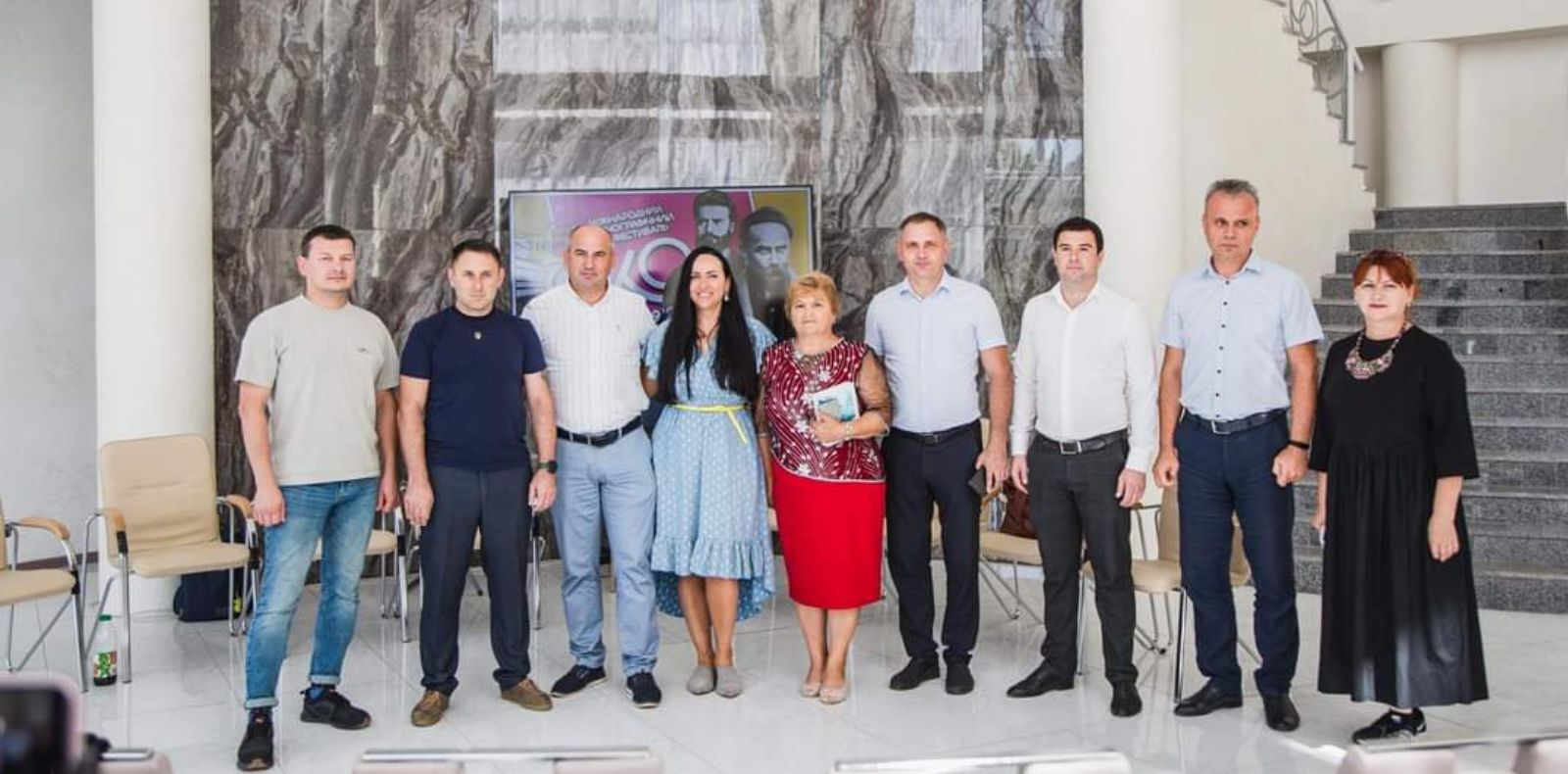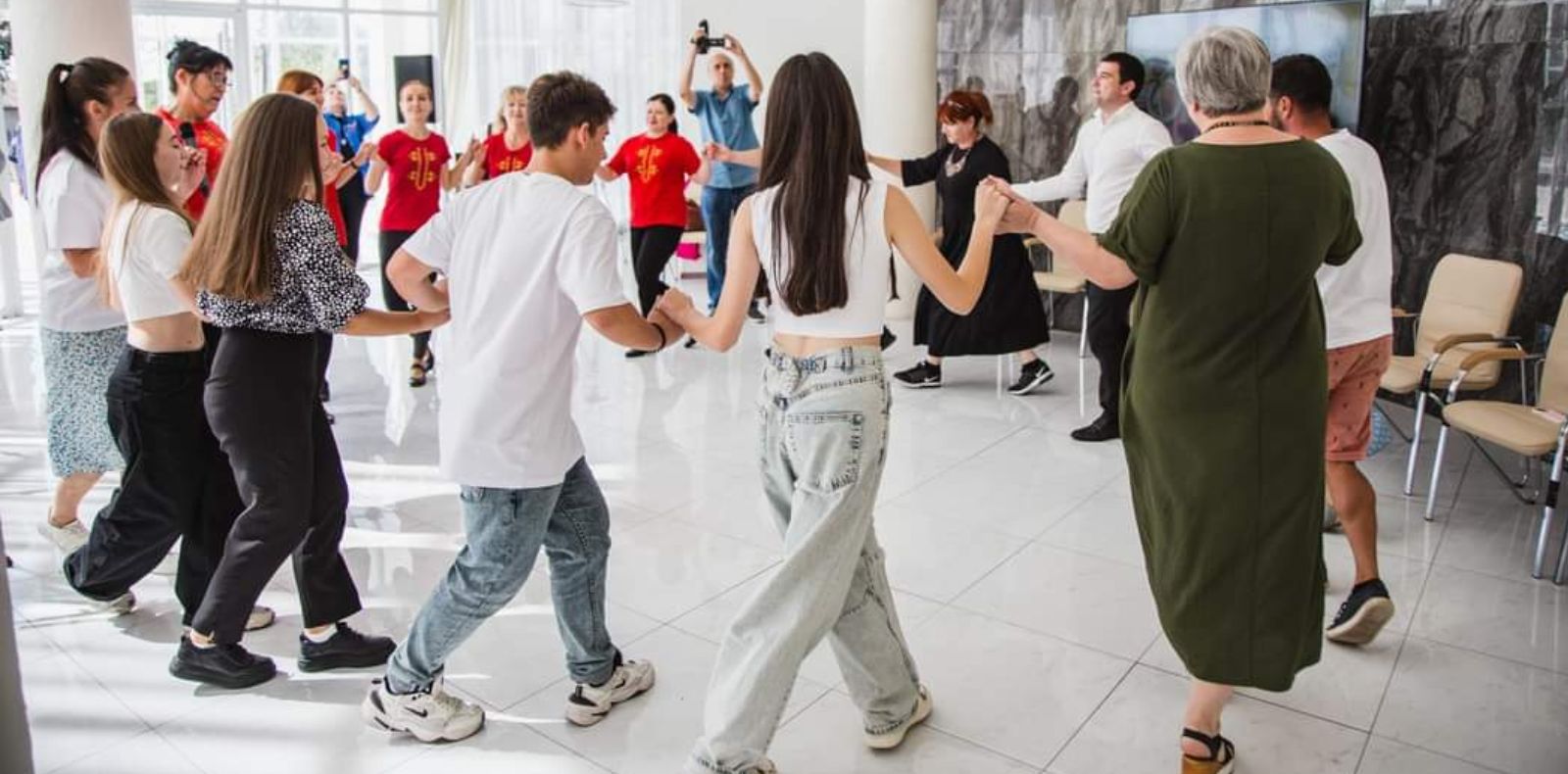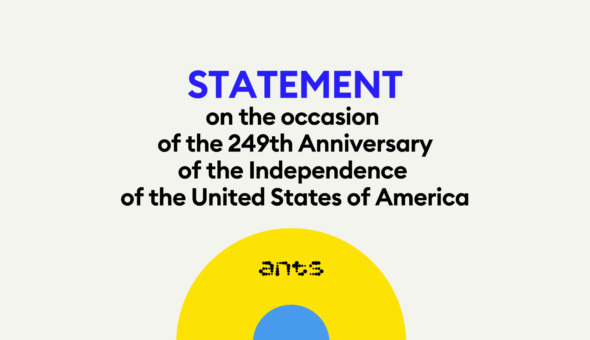
During the war and global challenges, the preservation of cultural heritage is becoming not just a public policy objective, but a matter of national security.
The cultural heritage of national minorities that have inhabited Ukraine for a long time is an important resource for strengthening international relations and countering aggression. This was discussed at a panel within the framework of the “OKO” International Ethnographic Film Festival, where participants discussed how this resource can be used in cultural diplomacy.
Mykhailo Sharafanenko, Head of the Bolgrad District Military Administration, highlighted that the war has united Ukrainians, regardless of their ethnicity. He noted that today, the culture and traditions that have long shaped our nation have become a shield in the fight for independence. And this is one of the key elements that unites us and helps us resist the enemy.
It should be remembered that Ukraine’s national minorities are not bystanders — they are actively involved in the defence of our country, and at the same time become a bridge to other cultures. According to Yurii Dimchohlo, a representative of the Gagauz community, after 2014, the sense of homeland became clearer for many representatives of national minorities. This is especially important in the context of Russian armed aggression, when Ukrainian citizens of different ethnic backgrounds stood up to defend Ukraine.
Culture identifies us not only within the country but also abroad. Viacheslav Vinchura, a folklorist and participant in the Budzhak Musical Heritage project, emphasises that Bessarabia is an example of preserving authentic traditions of different nationalities. In this region, ethnic communities have not only managed to preserve their cultures, but have also learned to live in harmony with each other. This is an experience worth learning from, because culture does not just preserve the past, it shapes our future.

However, we should not forget that national communities are facing the challenges of globalisation and the consequences of russification. Petro Dobriev, head of the village of Ostrivna, points out that many children in mixed families have stopped speaking the language of their ancestors. russian has replaced both minority languages and Ukrainian, which has led to the loss of unique cultural elements. This issue requires not only attention but also action.
All these challenges show that culture is not a static entity, but a living organism that needs to be supported, developed and promoted. The culture of Ukraine’s national minorities has a rich potential, and it is important to learn how to use it not only for internal unity but also for external relations.
As Kateryna Chuieva, an expert at the Cultural Heritage Protection Network project, whose team initiated this discussion, noted: “At the level of state policies, the potential of national minorities in cultural diplomacy is underestimated, while Ukraine’s ethnic and cultural diversity can be its strategic advantage.” It is important that the voices of ethnic communities, as well as local cultural figures and professional communities, are heard in the formation of public policy. Culture is not only a memory of the past, but also a foundation for dialogue about the future. And this dialogue takes place not only within the country but also abroad.
This material is presented by the National Interest Advocacy Network “ANTS” as part of its project implemented under the USAID/ENGAGE activity, which is funded by the United States Agency for International Development (USAID) and implemented by Pact in Ukraine. The contents of this publication are the sole responsibility of Pact and its partners and do not necessarily reflect the views of USAID or the United States Government.



